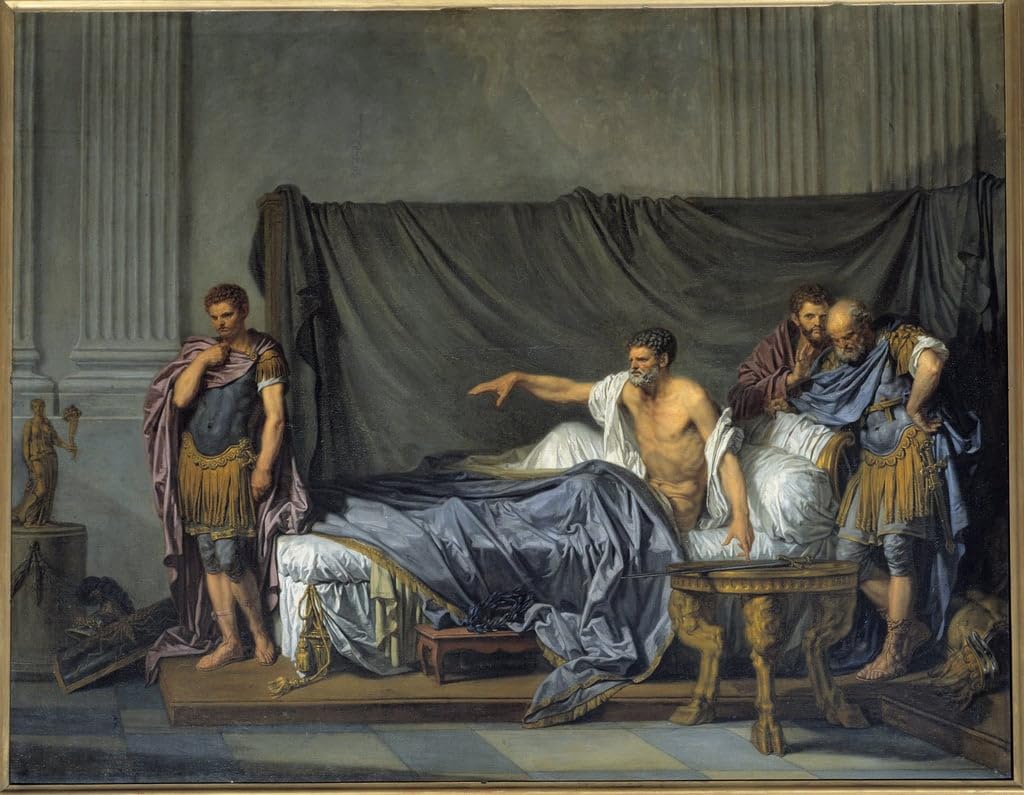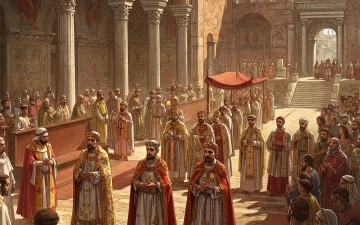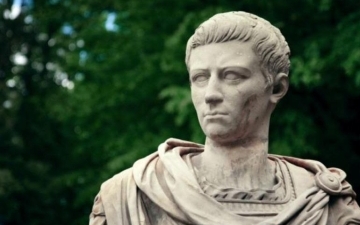Pertinax: The Brief Respite in Rome’s Chaotic Succession Crisis

The latter part of the 2nd century AD was a period of profound instability for the Roman Empire. The capricious and tyrannical reign of Commodus had left the empire in a state of disarray. His assassination in 192 CE ushered in a chaotic period often referred to as the Year of the Five Emperors. Amidst this turmoil, a figure emerged who offered a brief respite from the chaos: Publius Helvius Pertinax.
Pertinax was a far cry from his predecessor. A seasoned general and experienced administrator, he had earned a reputation for honesty, integrity, and competence. His appointment as emperor by the Senate was seen by many as a return to traditional Roman values.
Upon assuming power, Pertinax immediately set about reforming the empire. His primary focus was to restore fiscal stability. The extravagant spending habits of Commodus had drained the imperial treasury. Pertinax implemented austerity measures, reducing the size of the imperial household and cutting back on lavish public expenditures. These reforms were essential to prevent economic collapse.
Another key area of focus for Pertinax was the reform of the Praetorian Guard. This elite military unit had grown increasingly powerful and corrupt under Commodus. They had become a law unto themselves, and their involvement in the emperor's assassination highlighted their dangerous influence. Pertinax recognized the need to curtail their power and restore discipline to the guard.
While Pertinax's reforms were essential, they were also unpopular. The Praetorian Guard, in particular, resented the emperor's attempts to reduce their influence. Their resentment would ultimately lead to his downfall.
Pertinax was a man of principle, but he was also a realist. He understood the precarious nature of his position and the constant threat to his life. Despite the dangers, he remained committed to his duties and to the welfare of the empire.
Tragically, Pertinax's reign was cut short after only a brief period of three months. In January 193 CE, the Praetorian Guard, in a blatant act of mutiny, assassinated the emperor within the walls of the palace. His death plunged Rome back into chaos, as ambitious individuals vied for the imperial throne.
The brief reign of Pertinax serves as a stark contrast to the tyranny of Commodus. It is a reminder of the potential for good governance even in the darkest of times. While his legacy is overshadowed by the tumultuous events that followed, Pertinax's memory lives on as a symbol of integrity and duty.
His assassination marked a turning point in Roman history, as the crisis of imperial succession deepened. The empire would continue to be plagued by instability and civil war for decades to come.
Related Posts
Pertinax: The Brief Respite in Rome’s Chaotic Succession Crisis
The latter part of the 2nd century AD was a period of profound instability for the Roman Empire. The capricious and tyrannical reign of Commodus had left the empire in a state of disarray. His assassination in 192 CE ushered in a chaotic period often referred to as the Year...
Read MoreRoman Emperors and the Importance of the Catholic Jubilee of 2025
Throughout history, Roman emperors have played a crucial role in shaping the world, particularly in their influence over politics, religion, and culture. Their legacy continues to resonate today, especially in the traditions of the Catholic Church. One such tradition is the Catholic Jubilee, a sacred year of forgiveness, renewal, and...
Read MoreElagabalus: The Controversial Reign of Rome’s Youngest Emperor and His Religious Revolution
Elagabalus, born Varius Avitus Bassianus, is one of the most enigmatic and controversial figures in Roman history. Elevated to the imperial throne at the tender age of fourteen, his reign was marked by extravagance, scandal, and a radical religious transformation. His rise to power was as dramatic as his subsequent reign....
Read MoreBoost Productivity Respectfully: Non-Intrusive Alternatives to Screen Capture Monitoring
Screen monitoring has become essential in modern work environments, particularly with the shift towards remote and hybrid models. Many companies utilize screen capture tools to ensure productivity. But is this the best way to enhance employee performance? Overview of screenshot-based monitoring Screen capture employee monitoring is a popular tool used by managers...
Read MoreMatthew Henry’s Concise Commentary: A Timeless Guide to Biblical Understanding
Matthew Henry’s Concise Commentary on the Whole Bible is one of the most enduring and widely used resources for Bible study. Known for its clarity, depth, and spiritual insight, this commentary distills the essence of Matthew Henry’s original six-volume work into a shorter, more accessible format. It has been cherished...
Read MoreCaligula: Madness and Infamy in the Roman Empire
The name Caligula is synonymous with madness and infamy in the annals of Roman history. Gaius Julius Caesar Augustus Germanicus, known as Caligula, was the third Roman Emperor, and his tumultuous reign left an indelible mark of cruelty, debauchery, and tyranny. In this article, we delve into the life and...
Read More






















